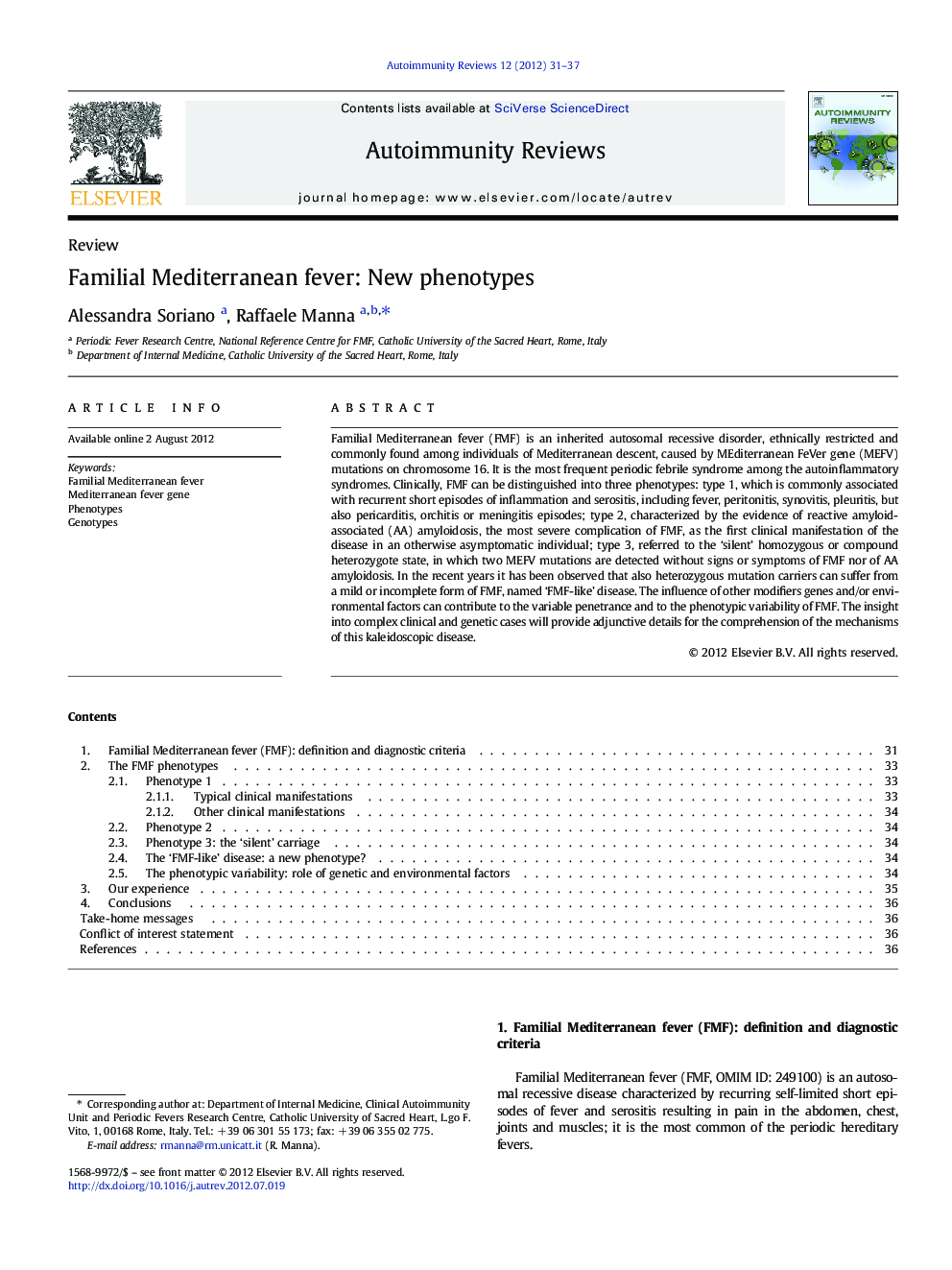| کد مقاله | کد نشریه | سال انتشار | مقاله انگلیسی | نسخه تمام متن |
|---|---|---|---|---|
| 3341763 | 1214239 | 2012 | 7 صفحه PDF | دانلود رایگان |

Familial Mediterranean fever (FMF) is an inherited autosomal recessive disorder, ethnically restricted and commonly found among individuals of Mediterranean descent, caused by MEditerranean FeVer gene (MEFV) mutations on chromosome 16. It is the most frequent periodic febrile syndrome among the autoinflammatory syndromes. Clinically, FMF can be distinguished into three phenotypes: type 1, which is commonly associated with recurrent short episodes of inflammation and serositis, including fever, peritonitis, synovitis, pleuritis, but also pericarditis, orchitis or meningitis episodes; type 2, characterized by the evidence of reactive amyloid-associated (AA) amyloidosis, the most severe complication of FMF, as the first clinical manifestation of the disease in an otherwise asymptomatic individual; type 3, referred to the ‘silent’ homozygous or compound heterozygote state, in which two MEFV mutations are detected without signs or symptoms of FMF nor of AA amyloidosis. In the recent years it has been observed that also heterozygous mutation carriers can suffer from a mild or incomplete form of FMF, named ‘FMF-like’ disease. The influence of other modifiers genes and/or environmental factors can contribute to the variable penetrance and to the phenotypic variability of FMF. The insight into complex clinical and genetic cases will provide adjunctive details for the comprehension of the mechanisms of this kaleidoscopic disease.
Journal: Autoimmunity Reviews - Volume 12, Issue 1, November 2012, Pages 31–37